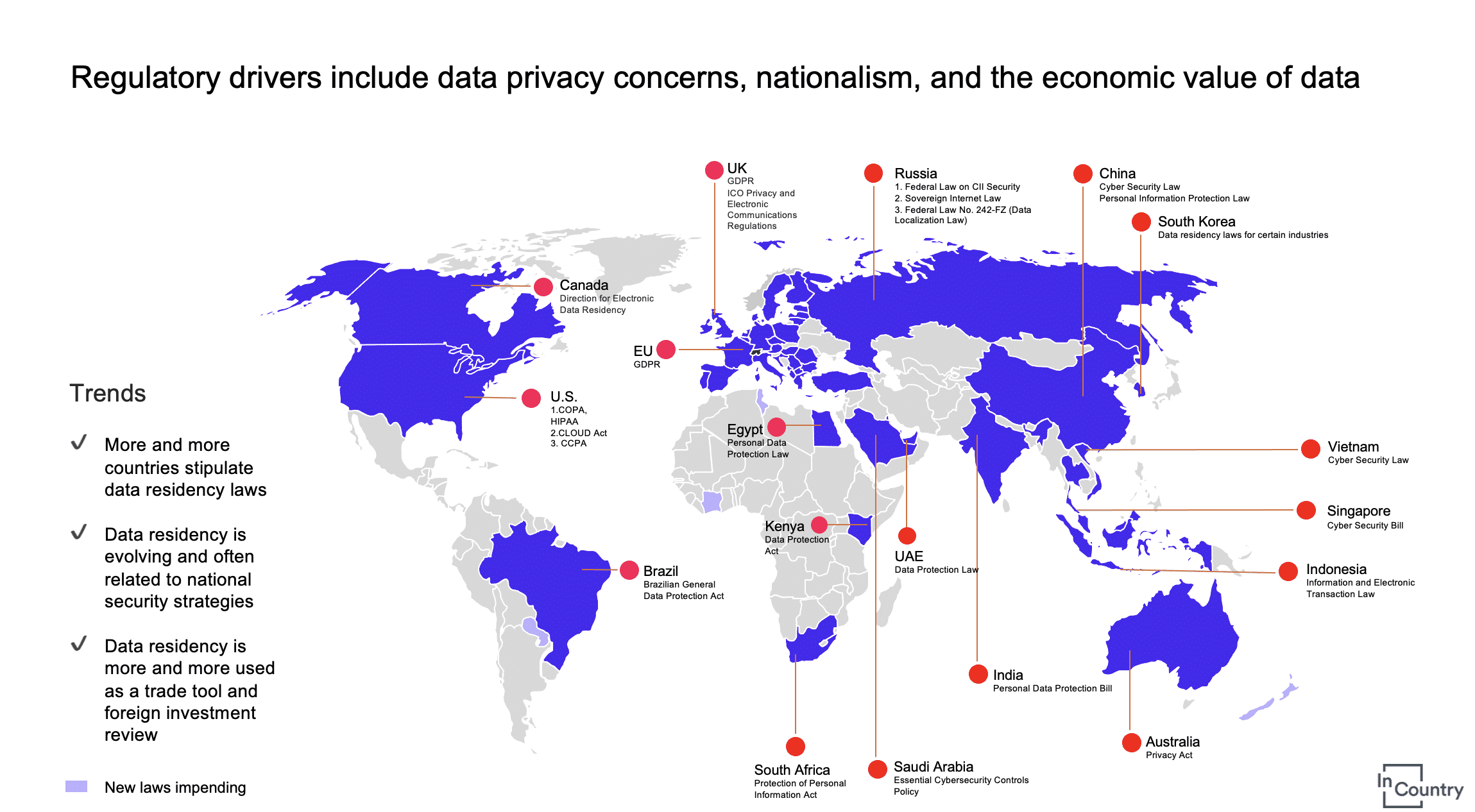
Data Localization Laws: Navigating Global Data Sovereignty
In an era of digital globalization, the concept of data localization has gained prominence as governments worldwide seek to assert control over the storage and processing of their citizens’ data. This article explores the landscape of data localization laws, examining the motivations behind them and the implications for businesses operating in a globally interconnected digital environment.
Understanding Data Localization:
Data localization refers to the legal requirement that certain types of data be stored and processed within the borders of a specific country. The intention is to ensure that sensitive data, often related to citizens or residents, remains subject to the jurisdiction and regulatory framework of that particular country.
Motivations and Rationales:
Governments implement data localization laws for various reasons. One primary motivation is to enhance data security and protect sensitive information from potential cyber threats or unauthorized access. Additionally, data localization is often driven by concerns related to national security, law enforcement, and the desire to have better control over data governance.
Compliance Challenges for Businesses:
For businesses operating in multiple countries, navigating the patchwork of data localization laws presents significant compliance challenges. Different jurisdictions have varying requirements, and companies must invest in infrastructure and processes to ensure they adhere to each country’s specific regulations. This can lead to increased operational complexities and costs for multinational enterprises.
Impact on Cross-Border Data Flow:
Data localization laws can impede the seamless flow of data across borders, hindering the efficiency of global business operations. Companies that rely on cloud services or process data in centralized locations may find their operations disrupted or constrained by the need to comply with diverse data residency requirements.
Striking a Balance: Data Security vs. Global Connectivity:
The tension between ensuring data security and fostering global data connectivity highlights the need to strike a balance. Governments aim to protect their citizens’ data, but this must be weighed against the potential economic impact of restrictions on cross-border data flow. Striking this delicate balance requires collaboration between governments, businesses, and international organizations.
Legal and Regulatory Variability:
The legal and regulatory landscape regarding data localization is far from uniform. Countries have different approaches, ranging from strict data residency requirements to more flexible frameworks. Understanding these variations is essential for businesses seeking to navigate the complex web of global data governance.
Innovation and Technological Advancements:
The rapid pace of technological advancements, including cloud computing and edge computing, challenges the traditional notions of data localization. Innovations in data storage and processing technologies offer opportunities for more flexible and efficient approaches to managing data while still addressing security and regulatory concerns.
Global Privacy Standards and Data Protection:
As data localization trends evolve, global privacy standards and data protection frameworks, such as the General Data Protection Regulation (GDPR) in the European Union, play a crucial role. These standards set benchmarks for data protection practices and influence how countries design their data localization laws to align with broader international norms.
Data Localization in the Post-Pandemic World:
The COVID-19 pandemic has accelerated digital transformation, with remote work and online collaboration becoming the norm. The post-pandemic world sees increased reliance on digital infrastructure, raising questions about the relevance and effectiveness of data localization laws in an era of heightened connectivity and distributed workforces.
Navigating the Future:
Navigating the future of data localization involves anticipating the evolving regulatory landscape and proactively adapting business practices. Collaboration between governments, businesses, and technology providers is essential to create a harmonized and globally interoperable framework that respects data sovereignty while promoting innovation and economic growth.
In conclusion, data localization laws present a complex and evolving landscape with implications for global businesses, governments, and technology providers. Striking the right balance between data security, national interests, and global connectivity requires ongoing collaboration and adaptation to navigate the intricacies of data sovereignty in the digital age. For deeper insights into data localization laws, visit Data localization laws.


